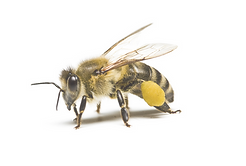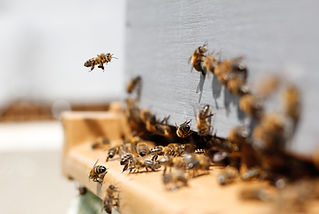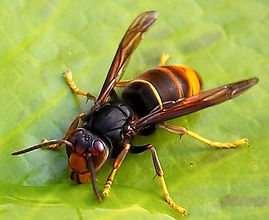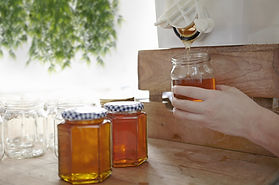
Sherborne Beekeepers' Association
Education And Training
During 2025 the SBKA hope to run a 6 week introductory course on Beekeeping. The course syllabus is below, and will give a sound introduction to the basics. Students will have the opportunity to gain hands-on experience of colony management, and remove some of the myths about bees.
Watch this space for details of the next course
If you are interested, please complete the contact form, and a member of the association will be in touch.

Week 1 - The life of the honeybee queen, worker and drone
Mar 2025
-
Development of the Queen, worker and drone
-
Identify brood in all stages and honey, nectar and pollen in the comb
-
Periods spent as egg, larva pupa and adult summer and winter bees life span
-
Collection and use of pollen, nectar, water and propolis
-
How the honeybee passes the winter

Week 2 - Equipment
-
Personal equipment needed to open a hive of honeybees
and importance of cleanliness.
-
Able to name and explain the functions of the principle parts of the modern beehive. Different types of hives and their advantages and disadvantages
-
Use of hive tool, smoker and other tools; spray, queen cages, nucs, markers bucket for washing soda
-
Effects of stings and treatment
Week 3 - The Beekeeping Year
-
Growth of the colony
-
Spring Inspections
-
Swarming Season
-
Harvesting
-
Feeding

Week 4 - Queens, Swarming and swarm control
-
Reasons for swarming and events during swarming
-
One method for swarm control
-
How to collect a swarm
-
Signs of queenlessness and tests
-
Laying workers and drone laying queens
-
How to introduce a new queen
-
Reasons for uniting colonies and one method of uniting colonies

Week 5 - Pests and Diseases
-
The appearance of healthy brood
-
Symptoms of AFB and EFB, chalk brood and sac brood
-
Varroa and its effects
-
Treatments for varroa including integrated pest
management
-
Adult bee diseases Acarine and Nosema symptoms
-
Disease diagnosis and sampling bees
-
Notifiable diseases and legislation
-
Wax moth, mice, woodpeckers, wasps and precautions

Week 6 - Honey harvest and the annual cycle
-
Feeding the bees sugar syrup/fondant/pollen supplement
-
Robbing and prevention
-
Harvesting honey and wax and legal
requirements of bottling and selling honey; hygiene
-
Apiary hygiene and comb change
-
Flowers for Bees
Practical Sessions
Following Weekends
This will be weather dependent - details will be announced at the training Sessions
